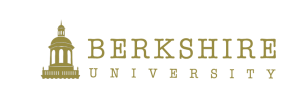Nursing, MSN
Philosophy
The BSU Master of Science in Nursing degree program has adopted Dr. Jean Watson’s philosophy and theory of human caring as a foundation, threaded throughout the curriculum. Keiser University proposes to develop leaders who strive to advance the profession of nursing, grounded in caring holistically for self, others, and the profession.
Program Overview
The American Association of College of Nursing ( AACN ) Essentials of Master’s Education in Nursing reflect the profession’s continuing call for imagination, transformative thinking, and evolutionary change in graduate education. Knowledge, expanding technologies, increasing diversity, and global health challenges produce a dynamic environment for nursing and amplify nursing’s critical contributions to health care. The competencies that support the objectives outlined in the MSN program are a critical component of the BSU MSN program and core to graduate nursing master’s education.
The Master’s degree programs in nursing are accredited by the Commission on Collegiate Nursing Education, 655 K Street, NW, Suite 750, Washington, DC 20001, 202-877-6791.
These Essentials are core for all master’s programs in nursing and provide the necessary curricular elements and framework, regardless of focus, major, or intended practice setting. These Essentials delineate the outcomes expected of all graduates of master’s nursing programs.
The dynamic nature of the healthcare delivery system underscores the need for the nursing profession to look to the future and anticipate the healthcare needs for which nurses must be prepared to address. The complexities of health and nursing care today make expanded nursing knowledge a necessity in contemporary care settings. The transformation of health care and nursing practice requires a new conceptualization of master’s education. Master’s education in nursing must prepare the graduate to:
- Lead change to improve quality outcomes
- Advance a culture of excellence through lifelong learning
- Build and lead collaborative interprofessional care teams
- Navigate and integrate care services across the healthcare team
- Design innovative nursing practices
- Translate evidence into practice
The nine Essentials addressed in the Program Objectives and Learning Outcomes guide the preparations of graduates for diverse areas of practices in any healthcare setting:
Essential I: Background for Practice from Sciences and Humanities
Recognizes that the master’s-prepared nurse integrates scientific findings from nursing, biopsychosocial fields, genetics, public health, quality improvement, and organizational sciences for the continual improvement of nursing care across diverse settings.
Essential II: Organizational and Systems Leadership
Recognizes that organizational and systems leadership are critical to the promotion of high quality and safe patient care. Leadership skills are needed that emphasize ethical and critical decision-making, effective working relationships, and a systems-perspective.
Essential III: Quality Improvement and Safety
Recognizes that a master’s-prepared nurse must be articulate in the methods, tools, performance measures, and standards related to quality, as well as prepared to apply quality principles within an organization.
Essential IV: Translating and Integrating Scholarship into Practice
Recognizes that the master’s-prepared nurse applies research outcomes with the practice setting, resolves practice problems, works as a change agent, and disseminates results.
Essential V: Informatics and Healthcare Technologies
Recognizes that the master’s-prepared nurse uses patient-care technologies to deliver and enhance care and uses communication technologies to integrate and coordinate care.
Essential VI: Health Policy and Advocacy
Recognizes that the master’s-prepared nurse uses patient-care technologies to deliver and enhance care and uses communication technologies to integrate and coordinate care.
Essential VII: Interprofessional Collaboration for Improving Patient and Population Health Outcomes
Recognizes that the master’s-prepared nurse, as a member and leader of interprofessional teams, communicates, collaborates, and consults with other health professionals to manage and coordinate care.
Essential VIII: Clinical Prevention and Population Health for Improving Health
Recognizes that the master’s-prepared nurse applies and integrates broad, organizational, client-centered, and culturally appropriate concepts in the planning, delivery, management, and evaluation of evidenced-based clinical prevention and population care and services to individuals, families, and aggregates/identified populations.
Essential IX: Master’s-Level Nursing Practice
Recognizes that nursing practices, at the master’s level, is broadly defines as any form of nursing intervention that influences healthcare outcomes for individuals, populations, or systems. Master’s level nursing graduates must have an advanced level of understanding of nursing and relevant sciences as well as the ability to integrate this knowledge into practice. Nursing practices interventions include both direct and indirect care components.



